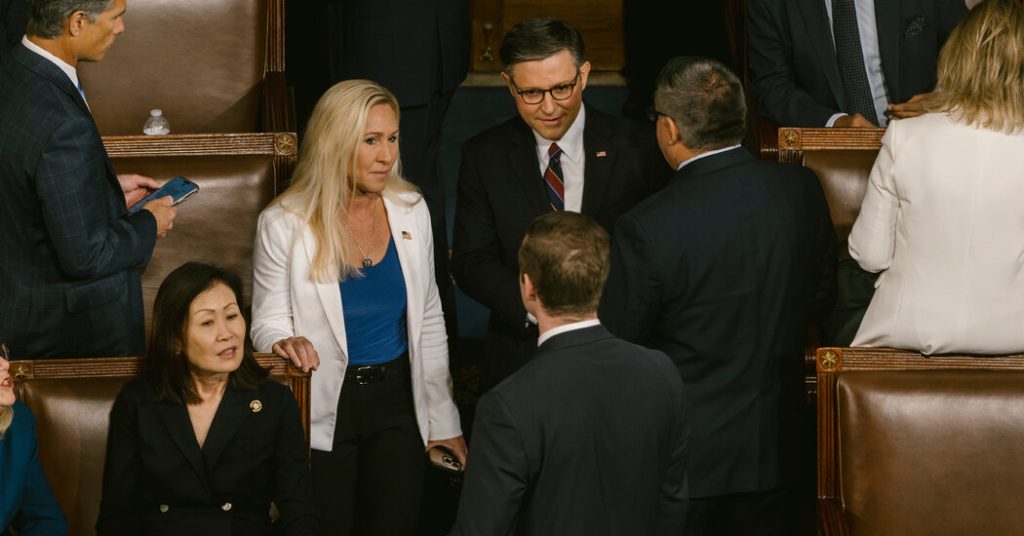The House took an important step on Friday towards reauthorizing a law extending an expiring warrantless surveillance law known as Section 702 of the Foreign Intelligence Surveillance Act (FISA). Speaker Mike Johnson proposed a two-year extension of the law, which was originally scheduled for a five-year renewal. This move helped win over hard-right Republicans who had previously blocked the bill. The House agreed to take up the new version of the legislation on a party-line vote of 213 to 208, setting the stage for a debate on proposed changes before a final vote on passage.
Former President Donald J. Trump had urged lawmakers during the week to reject FISA, claiming government officials had used it to spy on him. Despite this, the preliminary vote on Friday signaled that the bill was back on track. If passed by the House, the Senate and President Biden would still need to approve it. Johnson’s two-year version of the bill aimed to appease hard-right Republicans who believed Trump would return to office by the time the law expired again. All 19 Republicans who previously blocked the measure switched their positions on Friday to allow it to proceed.
Representative Michael Burgess, a Republican from Texas, praised the bill’s shorter reauthorization timeline, attributing the idea to Representative Chip Roy of the House Freedom Caucus. The bill was hailed as the largest intelligence reform package since FISA’s inception in 1978. The intelligence community has stressed the importance of passing a reauthorization before the program faces legal uncertainty due to potential court challenges.
The debate over FISA and Section 702 centers on the government’s ability to collect messages of noncitizens abroad without warrants, sometimes resulting in the collection of Americans’ private messages without permission. The FBI has breached restrictions on the use and search of this data in the past. The bill aims to codify changes to prevent these violations and add reporting requirements. Reformers, including progressive Democrats and libertarian-minded Republicans, seek to add a warrant requirement to prevent warrantless searches of Americans’ communications.
Critics, led by Representative Jim Jordan, aim to add the warrant requirement to the bill before its final vote. National security officials argue that this change would hinder their ability to use the program in early investigations involving suspected foreign spies or terrorists. Lawmakers like Representatives Michael R. Turner and Jim Himes, who oversee national security committees, support more modest adjustments to the bill. They are also pushing for amendments to expand the companies with access to foreign communications that can be compelled to participate in the program.
The House is set to vote on additional amendments to the surveillance law before finalizing the extension itself. These include measures to broaden the types of companies involved in the program. The debate over FISA and Section 702 continues to be a contentious issue within Congress, with different factions pushing for varying levels of reform. The outcome of these debates will shape the future of government surveillance practices and protections for Americans’ privacy.


